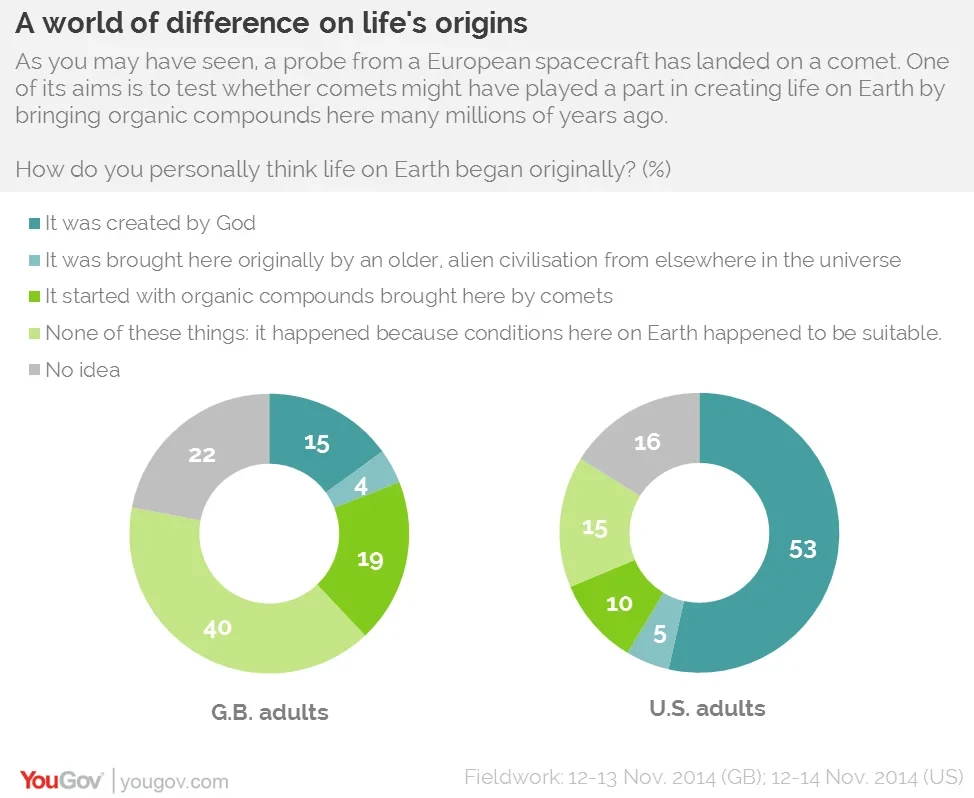Was it God, or did life just 'happen'? Americans and Britons give different answers, though both tend to believe aliens probably exist
People in both Britain and the United States have been captivated by the Philae lander’s arrival at comet 67P, but according to a new YouGov survey there is plenty of space between the two countries when it comes to popular beliefs about the origins of life on Earth.
Following the news that the probe, launched 10 years ago by the European Space Agency, had reached its destination, YouGov asked people in both countries the question shown below, and made some dramatic findings.

For one, the surveys show that the comet theory has yet to make much of an impact in either country. Only one in ten Americans (10%) are on board with the idea that organic compounds hitchhiked their way to earth on comets. British people are more receptive, but even then only 19% pick the comet explanation.
Most striking is the difference between Americans and British people on the role played by God. The theological explanation is chosen by 53% of Americans, and is the most popular explanation across all demographics – Americans old and young, male and female, Republican and Democrat all tend to credit God with the creation of life on Earth. By contrast, only 15% of British people say life originally began on Earth when it was created by God – an even smaller percentage than believe comets are responsible.
The most popular explanation among Britons is arguably the most ordinary one: 40% say it’s not a deity, a comet or an alien race that provides the key to the mysteries of creation, just fortuitous conditions on Earth. Mirroring the British response to the God explanation, only 15% of Americans picked the Earth-only explanation.
Daring to believe
Curiously, while they disagree on the origins of life on Earth, American and British people largely see eye-to-eye when it comes to life on other planets.
66% of British adults think it’s at least somewhat likely that there is intelligent life elsewhere in the universe. In the United States, the number is 67%. The belief in intelligent extraterrestrial life is common across all demographics in both countries, though there is some variance.
For instance, British Conservatives are less likely to believe in aliens than Liberal Democrats (64% versus 77%) and British women are less likely than men (58% versus 76%). In the US, there is a similar political gap between Republicans and Democrats (59% versus 71%) and a similar, but smaller gender gap (63% of US women believe versus 72% of men).
Image: NASA / Jenny MottarSee the full results here (GB) and here (US).








